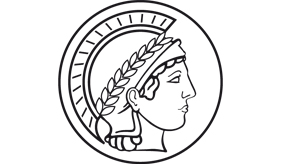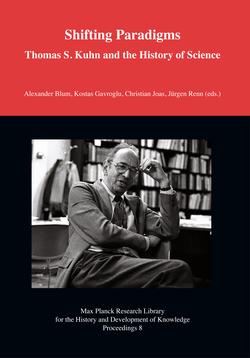Introduction
Alexander Blum, Kostas Gavroglu, Christian Joas, Jürgen Renn
Where to Start?
John L. Heilbron
Part 1: Personal Recollections
1 The Nature of Scientific Knowledge: An Interview with Thomas S. Kuhn
Skúli Sigurdsson
2 Steve’s Question and Tom’s Last Lecture: A Personal Perspective
Gerald Holton
3 Thomas Kuhn: A Man of Many Parts
William Shea
Part 2: Historicizing Kuhn
4 An Episode from the History of History and Philosophy of Science: The Phenomenal Publishing Success of Kuhn’s Structure
Kostas Gavroglu
5 Kuhn’s Paradigm of Paradigms: Historical and Epistemological Coordinates of The Copernican Revolution
Pietro Daniel Omodeo
6 Contemporary Science and the History and Philosophy of Science
Olival Freire Jr.
7 Kuhn in the Cold War
Ursula Klein
8 Science, Criticism and the Search for Truth: Philosophical Footnotes to Kuhn’s Historiography
Stefano Gattei
9 Two Encounters
Fynn Ole Engler, Jürgen Renn
Part 3: Kuhn’s Legacy
10 Thomas Kuhn
Jed Z. Buchwald
11 Thomas Kuhn and the Dialogue Between Historians and Philosophers of Science
William Shea
12 Constructive Controversy and the Growth of Knowledge
Martin J. S. Rudwick
13 The Structure of Scientific Revolutions and History and Philosophy of Science in Historical Perspective
Theodore Arabatzis
14 On Reading Kuhn’s Black-Body Theory and the Quantum
Discontinuity, 1894–1912
Richard Staley
15 Science, Politics, Economics and Kuhn’s Paradigms
José M. Sánchez-Ron
16 Abgesang on Kuhn’s “Revolutions”
Ursula Klein
Part 4: Reinterpreting Kuhn
17 The Pendulum as a Social Institution: T. S. Kuhn and the
Sociology of Science
David Bloor
18 The Notion of Incommensurability
Harry Collins
19 Kuhn, Meritocracy, and Excellence
Michael Segre
20 From Structures and Tensions in Science to Configurational Histories of the Practices of Knowledge
John Pickstone
Part 5: Beyond Kuhn
21 Kuhnian and Post-Kuhnian Views on How Science Evolves
Mary Jo Nye
22 Experimental Turnaround, 360°: The Essential Kuhn Circle
Carsten Reinhardt
23 History of Science: The French Connection
John Stachel
24 The Professionalization of Research on the History of Science in China and the Influence of Eurocentrism on Chinese Historians of Science
Baichun Zhang
25 On Kuhnian and Hacking-Type Revolutions
Silvan S. Schweber
26 Goethe Was Right: ‘The History of Science Is Science Itself’
M. Norton Wise
27 History of Science and Technology in Portugal: Networking in the European Periphery
Ana Simões
B
Bachelard, Gaston
- 1
- 2
- 3
- 4
- 5
- 6
- 7
- 8
- 9
- 10
- 11
- 12
- 13
- 14
- 15
- 16
- 17
- 18
- 19
- 20
- 21
- 22
- 23
- 24
- 25
- 26
- 27
- 28
- 29
- 30
- 31
- 32
- 33
- 34
- 35
- 36
- 37
- 38
- 39
Balibar, Étienne
Barnes, Barry
Barnes, Harry Elmer
Bell, John Stewart
Beller, Mara
Ben-David, Joseph
Benedetti, Giovanni Battista
Bergson, Henri
Bernal, John Desmond
Bernard, Claude
Biagioli, Mario
Bird, Alexander
Blackburn, Simon
Bloor, David
Bohm, David
Bohr, Niels
Borkenau, Franz
Born, Max
Brahe, Tycho
Brown, Theodore
Bruno, Giordano
Brush, Stephen G.
Bub, Jeffrey
Bukharin, Nikolai
Bunge, Mario
Burgess, Anthony
Buridan, John
Butterfield, Herbert
C
Canguilhem, Georges
Cardwell, Donald
Carnap, Rudolf
Carson, Rachel
Cavaillès, Jean
Cebrián, Juan Luis
Chang, Hasok
Chew, Geoffrey
Chomsky, Noam
Chu, Co-ching
Clagett, Marshall
Clark, George
Clauser, John F.
Cohen, Bernard
Cohen, Floris
Collins, Harry
Commoner, Barry
Comte, Auguste
Conant, James B.
Copernicus, Nikolaus
- 1
- 2
- 3
- 4
- 5
- 6
- 7
- 8
- 9
- 10
- 11
- 12
- 13
- 14
- 15
- 16
- 17
- 18
- 19
- 20
- 21
- 22
- 23
- 24
- 25
- 26
- 27
- 28
- 29
- 30
- 31
- 32
- 33
- 34
- 35
- 36
- 37
- 38
- 39
- 40
Cortesão, Armando
Cortesão, Jaime
Creager, Angela
Crew, Henry
Crombie, Alistair
Cross, Andrew
Cuvier, Georges
G
H
L
Lakatos, Imre
Lange, Otto
Latour, Bruno
Laudan, Larry
Laughlin, Peter
Laughlin, Robert
Lavoisier, Antoine Laurent de
Leary, Timothy
Lecourt, Dominique
Leite, Duarte
Lenin, Vladimir
Lewis, Bernard
Li, Yan
Liang, Qichao
Libbrecht, Kenneth
Lovejoy, Arthur
Luther King, Martin
Luther, Martin
Lyell, Charles
Lévi-Strauss, Claude
M
Mach, Ernst
Mahoney, Michael
Malus, Etienne Louis
Mannheim, Karl
Mao, Zishui
Marcuse, Herbert
Masters, William
Maxwell, James Clerk
Mbeki, Thabo
McKie, Douglas
McLuhan, Marshall
Medawar, Peter
Merton, Robert K.
Merz, J. T.
Mieli, Aldo
Mintz, Morton
Money, John
Monte, Guidobaldo del
Morgan, Mary
Morrell, Jack
Morris, Charles
Murchison, Roderick Impey
P
S
Information
ISBN
978-3-945561-11-9
DOI
10.34663/9783945561119-00
Pages
397
Publication Date
Feb. 29, 2016
Print on Demand
currently unavailable
Suggested Citation
Blum, Alexander, Gavroglu, Kostas, Joas, Christian and Renn, Jürgen (eds.) (2016). Shifting Paradigms: Thomas S. Kuhn and the History of Science. Berlin: Max-Planck-Gesellschaft zur Förderung der Wissenschaften.
Submitted by
Rivka Feldhay

